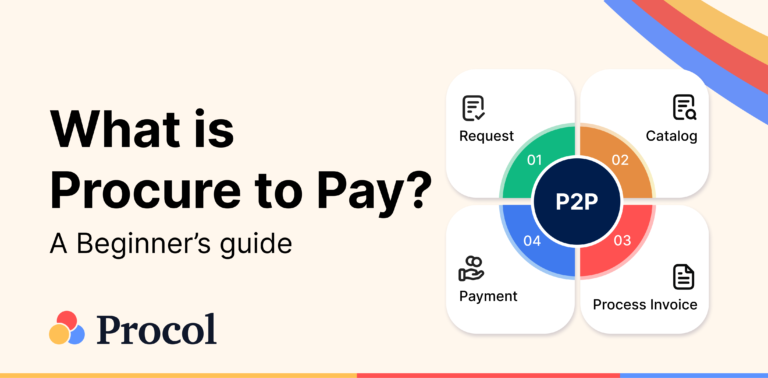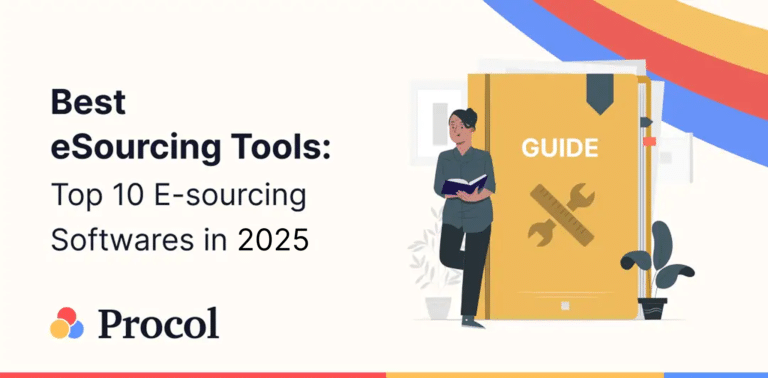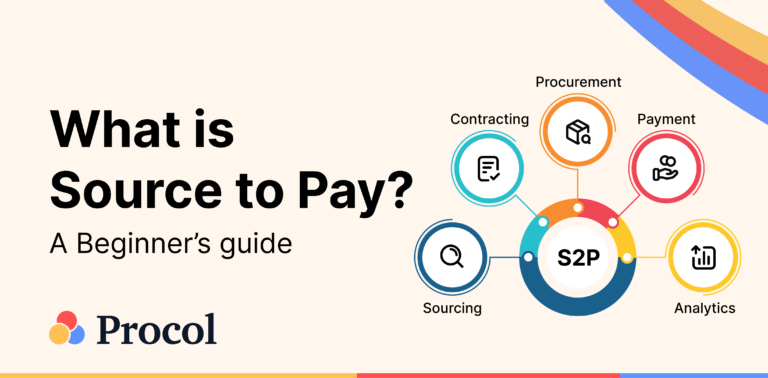Procol • April 15, 2025
The A-Z of Vendor Management System

Introduction
In various industries — from hospitality, construction firms, and tech companies to financial institutions — vendor management is one of the main aspects of operations. With effective vendor management, such industries get assurance that they align with constantly changing trends and match customer expectations. In 2023, the vendor management software market size was USD 7.7 billion, and it is projected that by 2030, it’ll reach 17.15 billion, spreading at a CAGR of 14.75%.
Let’s take a detailed look at what a vendor management system is!
What is a Vendor Management System (VMS)?
The vendor management system is a software solution that smoothens and automates the onboarding and tracking of various vendor management processes. For example, if your business operates in the tech sector, where you’ll need external vendors for data center management, cloud services, etc., choosing the best vendor management system can prove to be cost-effective for you — improving vendor performance management, giving you a competitive advantage, and achieving shared goals.
Some of the important aspects where the vendor management system helps in making the process better and achieving adequate results to meet organization goals are:
- Compliance management
- Vendor communication
- Invoice processing
- Vendor onboarding
- Vendor selection
- Contract management
- Performance tracking
- Risk assessment
- Vendor evaluation
- Audit trails
- Vendor workflow
- Vendor diversity management
Benefits of a Vendor Management System
Reduce delays in the supply chain
In establishing alternative supply sources and connecting with different and more vendors, VMS reduces the probability of disruptions, which reduces delays in the supply chain.
Stockouts are one of the reasons for delays in the supply chain. In such cases, with the help of the best VMS, which has various inventory level insights data, order tracking, delivery insights, etc., businesses can adjust production and demand shifts, ultimately reducing supply chain delays.
The area in which the most common delays happen in the supply chain is the payment process. The risk of delays can be minimized by reducing payment processing time, automating order processes, etc.
Integrated management of compliance
VMS stores all compliance documentation in a single repository to have transparency and accountability and to know the compliance status of vendors. Organizations conduct a compliance audit to avoid potential risks by using the best vendor management software so any risks can be issued and immediate actions can be taken to resolve them.
Regarding compliance-related matters, VMS fosters communication and collaboration with vendors and identifies issues, if any, to build a secure communication channel.
Make use of advanced statistics and reporting
Advanced reporting functionalities help businesses make well-informed and strategic decisions by analyzing trends and data and creating accurate reports. These statistical reports align communication and decision-making and help address issues or future opportunities in vendor and business relationships. Accountability, business success, transparency, and cost efficiency are necessary for improved vendor performance processes. Analyzing statistics and accurate reports ensures smooth processes, clearly showing what needs improvement and fixing.
Optimized billing
The vendor management system streamlines billing processes. To avoid any errors or overbilling, VMS has features such as three-way matching and invoice matching, which ensure accuracy. Based on vendor contracts, VMS supports various billing arrangements and implements multiple business models such as time-based billing, milestone-based billing, and fixed-rate filling. Choosing a vendor management system avoids chances of discrepancies, avoids financial penalties, and fosters trust with vendors.
VMS and financial software integration streamline billing and financial operations. Many times while running a successful business, invoice disputes may occur, which can be avoided with vendor management software. Providing standard workflows and documentation tracking, it automates cross-border billing operations, tax calculation, and currency conversion, which automatically avoids any risk that might come with billing work.
Automated notifications and alerts save time when solving any potential discrepancies. Billing accuracy can be leveraged by implementing correct actions and trend analysis.
Improve transparency
Transparency is one of the most needed factors when considering business growth. In vendor management, establishing a good bond with vendors is necessary — by utilizing various communication and messaging tools — one can easily solve any issues and share clear expectations and feedback to grow. With clear accountability, billing data, monitoring and analyzing payment-related data, and analyzing vendor money-related behavior, vendor management software reduces fraud and illegal practices while building a strong bond between businesses and vendors in the long run. Transparent audit trails, transparency in vendor cost structure, transparency in vendor performance, transparent data about vendor relationships and transactions, vendor-related expenses, and precise tracking are some of the transparent data to which we get access by choosing vendor management software.
What is the vendor management process?
Vendor management system is the process of training and guiding onboarding vendors so that they can provide needed goods or services that align with the organization’s goal and ensure customer satisfaction by being beneficial for both vendors and businesses. Maintaining quality work, proper utilization of all resources, and minimizing any risk are primary needs of businesses, which can only be achieved by innovative strategies for managing vendors.
To handle the complexity of vendor management, top-notch vendor management tools, vendor management services, and techniques are required to navigate the diversified network of suppliers.
What are the stages of vendor management?
Integration
Vendors start working with businesses and execute their plans and processes, resulting in seamless collaboration by providing the best vendor management services. Enhanced performance, efficiency, and productivity can be achieved through constructive integration.
Collaboration
Businesses collaborate with vendors and negotiate some terms and conditions, making sure that the deal is going to be profitable for both businesses and vendors. Collaboration is considered to be a crucial stage for building long-term relationships with vendors and maintaining trust and transparency.
Segmentation
This is the first stage, where businesses segment the vendors based on their expectations, business objectives, capabilities, and quality of work they are expecting from vendors, etc. This process streamlines the vendor selection process and makes sure that every vendor is aligned with business objectives and needs to achieve profitability.
What are the types of vendor management?
Let’s get introduced to various types of vendor management:
Strategic Vendor Management
It focuses on building long-term relationships with vendors to achieve organizational goals to maintain mutual trust and transparency. Performance evaluation, collaboration and needed communication are the part of strategic vendor management.
Tactical Vendor Management
It revolves around daily vendor operations like dispatching orders, managing processes, etc. It focuses on immediate operational requirements for businesses to work seamlessly.
Centralized Vendor Management
For better coordination, cost savings, ethical practices, etc., a single leading centralized vendor management authority looks over vendor activities. It’s effective in achieving efficiency, promoting the best practices, and having more control over processes.
Decentralized Vendor Management
Different departments of business manage vendor relationships. As each department handles its respective work, it creates the space for innovation and experimentation, which helps achieve profitable results.
Hybrid Vendor Management
It’s a combination of Centralized Vendor Management and Decentralized Vendor Management. This approach gives the advantage of both centralized vendor management and decentralized vendor management to achieve effective strategic objectives.
How do you choose the right and best Vendor Management System?
- Evaluate your needs and choose the best VMS aligning with them: Determine why you need a vendor management system, what your company size is, what the goals you want to meet, what the current state of your vendor management process is, what plans are needed, and any specific issue you want to address and work on.
- User-friendly interface and best support: Your team needs to have a user-friendly vendor management system while working. Look for a VMS that offers the best features and is easy to learn and handle.
- Calculate the ROI: While selecting a VMS, ask for a demo first and include your staff in deciding if the product is worth your ROI. Be clear on your goals, have a list of questions to ask, and gain clarity on whether you want to go for it or not.
- Use a scorecard to evaluate the VMS: List your options and then compare them according to your needs. Have some major criteria that can help you decide further. To start with, you can book your demo with us here.
What are the top 5 vendor management software?
Introducing the most influential and effective top vendor management systems to achieve your organizational objective.
Procol
Procol is an ideal vendor management software that enables businesses to handle end-to-end vendor management processes, whether it’s vendor onboarding or audit trail. Its user-friendly interface, effective reporting and analytics, and valuable insights make Procol a preferable choice among various vendor management software. Founded in 2018, Procol is India’s ideal vendor management software company that has been securely deployed at many $1B global companies. It has helped procurement teams reduce costs, digitize procurements with top-notch vendor management tools and vendor management services. Procol has various unmatched features and capabilities, that makes it the best procurement management software for your system.
What works for Procol:
- Next-generation platform to get all your spend under control and ultimately gain 2-10% cost savings
- Saved 15,000 hours by automating tedious procurement tasks for 100+ global enterprises
- $100M+ generated savings by Procol customers
- Empower teams with a dedicated mobile-first approach. It ensures procurement professionals have the flexibility they need to drive efficiency wherever they are.
- Businesses gain the flexibility of customizable workflows and templates that meet precise organizational need
- Gives access to 50,000+ vendors registered, onboarded globally
- Intuitive interface and unmatched efficiency ensures quick setup
- Streamlines capex sourcing for maximum efficiency
- Integrates seamlessly with ERP systems to smoothen procurement operations
SAP Ariba
Founded in 1996, SAP Ariba is another vendor management software that offers supply chain, finances, and spending management services. To have more control over the procurement process, SAP Ariba can be integrated with SAP ERP, the S/4 HANA system. Its effective insights enable taking effective data-driven decisions to improve the supply chain.
Beeling
It’s known for its customizable workflows; for services procurement, data security, and resource tracking, it is the best tool. Its insights help businesses in making needed improvements and have proven to be beneficial in adapting to changing markets.
Genuity
Genuity is the best vendor management platform. For example, special features include seamless collaboration, contract and asset management, telecom management, and SAAS management. Genuity is preferable for leveraging operational efficiency, sustainable growth, and streamlining operations.
Onspring
It fulfills the unique needs of the organization. In analytics reporting, compliance management, governance enhancement, and vendor risk assessment in such aspects, Onspring stands out in all vendor management platforms.
A Vendor Management System (VMS) is crucial in making the vendor management process more manageable. It helps with vendor onboarding, compliance management, invoice management, customization, and scalability and ensures a smooth and efficient process.
The Vendor Management Office as a Strategic Tool
The vendor management office is a strategic tool that supports various aspects of vendor management but essentially focuses on working with reliable vendors — which also aligns with what businesses look for, i.e., growth and building long-lasting relationships.
Saving costs, fostering vendor relationships, and reducing risks are some common areas VMO helps with. Clear-cut communication is needed to ensure customer satisfaction, both vendor and business benefits, trust, and clarity. VMO offers a communication channel to resolve any future conflicts.
Monitoring vendor performance, orderly audits, and tracking essential key performance metrics in inventory level, billing procedure, orders process, and delivery time, VMO helps optimize and curate strategies for better and enhanced vendor management. Besides, to ensure the business is getting good returns by investing, the vendor management office also helps achieve good ROI via saving costs, contract negotiation, and vendor integration efforts.
Best Practices in Strategic Vendor Management
1. Measure and track vendor performance with KPIs
Regular and transparent communication with vendors keeps you on track about work, but transparent data helps identify risks and resolve them immediately without delay. Setting some KPIs helps produce accurate data. VMS gives you an advantage in this aspect.
Here are some of the KPIs to take into consideration:
- Delivery execution – lead time variance, on-time delivery
- Cost – cost variance, cost savings
- Responsiveness – response time, problem-resolving time
- Effectivity of communication
- Compliance and risk handling – compliance rate, risk handling
- Relationship management – measure transparency, strength, relationship with vendor
- Alignment – value contribution, measuring vendor is aligning with a business goal
2. Verify vendor contracts specifying objectives
Vendor contracts specify clear objectives, terms, and expectations you, as a business, have from vendors to help ensure that they work smoothly without any misunderstanding. Objectives should be precise and easily trackable, according to which further processes can be carried out and prioritized accordingly.
To have an overall beneficial business relationship between vendors and businesses, well-defined objectives help analyze vendors’ performances, provide feedback, and identify issues to resolve, if any. The contract should be clear, specific, relevant, realistic, and aligned with vendors’ expertise; contractual clauses should be included, legally reviewed, and include performance measuring metrics to help meet specified objectives.
3. Encourage collaboration among vendors
Encouraging vendor collaboration is one of the best practices in strategic vendor management, as it is valuable in many ways. Collaboration platforms streamline communication, exchange of ideas, feedback, and sharing of documents, etc.
4. Having shared goals and objectives
Set clear goals and objectives to make sure that vendors’ goals align with business objectives.
5. Onboarding
Be transparent and keep your objectives in front of your new suppliers.
6. Innovation in work
After choosing your VMS wisely, make sure there is constant improvement in tech and overall performance to keep up with the changing market and digital world.
7. Establish a transparent vendor management protocol
Taking transparency, trust, and accountability into consideration, establishing a transparent vendor management protocol will always help.
8. Transparent communication
Specific and open communication channels help identify issues, the root cause behind issues, and find a correct solution. Transparency communication works in resolving conflicts, managing expectations, and promoting innovation.
9. Vendor audit
Vendor audit is crucial for ensuring quality standards. Engaging with vendors to gather all necessary information to conduct a proper audit helps take preventive measures to resolve identified issues. Vendor audits also offer improvement in vendor management processes.
10. Documenting important decisions
One can check such documents in case of any future dispute because of lack of clarity — these documents specify accountability over particular decisions and support clarification, thus helping to build strong relationships between businesses and vendors in the long run.
Challenges in vendor management system
Finding an ideal vendor management solution is a major challenge businesses come up with. Building relationships with vendors, keeping track of vendor performance, confirming its alignment with your objectives, calculating investment costs, and getting desired results are real challenges.
While dealing with vendor management, there’s a chance that stakeholders may risk business reputation. White having the right vendor management solution fosters business success; choosing the wrong partner not only lowers consumer satisfaction but also makes businesses suffer.
Data security, disputes because of a lack of clarity, vendors not meeting goals and delivering needed outcomes, and contractual disagreements are a few challenges businesses face while dealing with vendor management. With the best vendor management software, such problems can be avoided to a great extent.
Conclusion
Having the right system matters a lot for businesses that deal with vendor management. Compliance management, time efficiency, access to advanced statistics and reports, optimized billing, and performance tracking are a few of the benefits that vendor management systems have to offer.
Choosing the right and best vendor management system demands time, clarity, and proper market research.
Explore more from Procol
Discover expert tips, how-to guides, industry insights, and the latest procurement trends.

What is Procure-to-pay (P2P)? An Ultimate Guide
Procure to pay is the process from procurement of materials needed...

Best eSourcing Tools: Top 10 eSourcing Software in 2025
Discover top 10 e-sourcing tools and esourcing platforms necessary for efficient...

What is Source-to-pay in 2025? An Ultimate Guide
Source to pay is the process of sourcing vendors to procure...



















